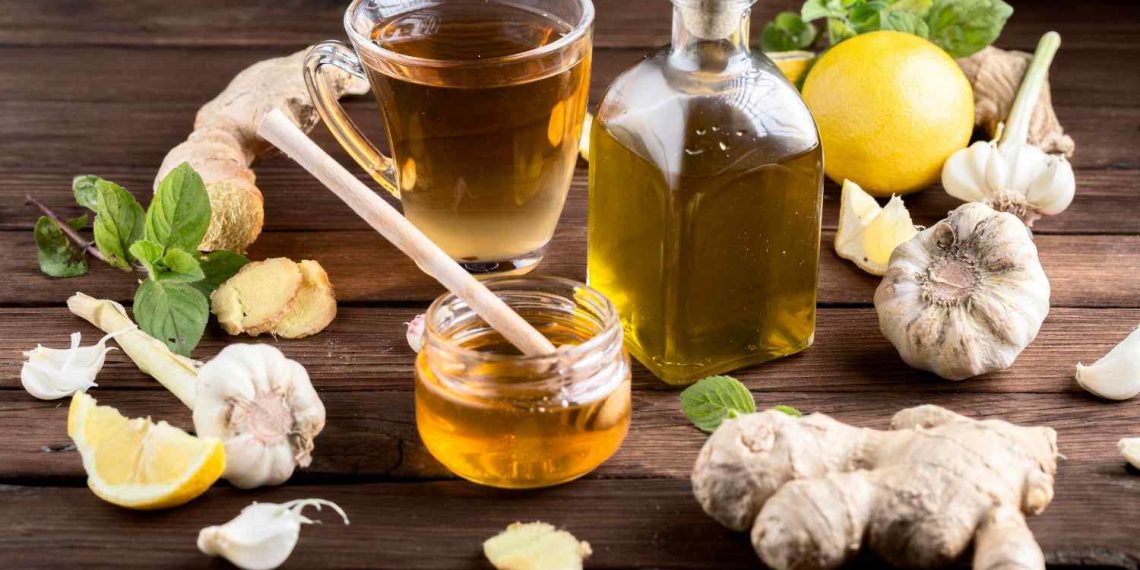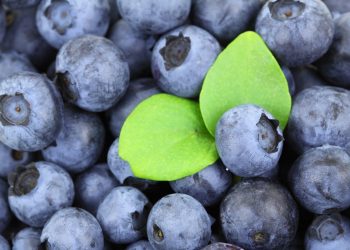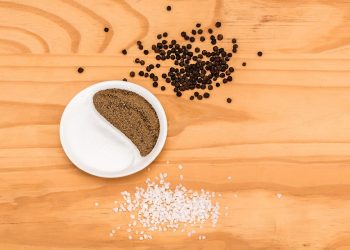Garlic is more than just a culinary staple; it’s a powerhouse of health benefits, particularly when consumed as garlic tea. Emerging research has begun to unveil its potential role in lowering blood pressure. If you often find yourself feeling the weight of high blood pressure or are simply looking to enhance your heart health, consider these five reasons to sip on garlic tea.
Contents
1. Garlic Contains Allicin
Allicin is one of the key compounds in garlic, known for its various health benefits. When garlic is chopped or crushed, it produces allicin, which has been linked to several cardiovascular benefits. According to a systematic review conducted by K. R. Ried et al. in 2016, consuming garlic may lead to a significant reduction in systolic and diastolic blood pressure, particularly for those with hypertension.
The mechanism here involves allicin’s ability to improve endothelial function, which helps blood vessels relax and widen, thus lowering blood pressure. So, when you brew that cup of garlic tea, you’re not just quenching your thirst—you’re infusing your body with a natural compound that supports healthier blood flow.
2. Anti-Inflammatory Properties
Chronic inflammation has been identified as a contributing factor to hypertension. Garlic tea boasts anti-inflammatory properties that may help lower blood pressure by reducing systemic inflammation. A study by J. B. Li et al. in 2020 found that garlic has the ability to lower pro-inflammatory cytokines in the body, which can help regulate blood pressure levels.
When you drink garlic tea, think of it as a soothing balm for your blood vessels. With each sip, you’re doing your part to minimize inflammation, thus supporting overall heart health. This is particularly important for you if you’re dealing with lifestyle factors such as stress and poor diet, which can exacerbate inflammation and, in turn, blood pressure levels.
3. Garlic Tea Is Rich in Antioxidants
Antioxidants play a crucial role in protecting our cells from oxidative stress, which can also lead to hypertension. Garlic is rich in antioxidant compounds that help stave off cellular damage. A study published in the British Journal of Nutrition by P. M. M. D. P. H. F. H. Z. R. G. M. Stark in 2018 highlighted that garlic can enhance antioxidant enzyme activity in the body.
In practical terms, the antioxidative effects of garlic can work synergistically with its blood pressure-lowering capabilities. This combination can be vital for individuals who might not only be dealing with hypertension but also other degenerative diseases that stem from oxidative stress.
4. Promotes Better Circulation
Better circulation is integral to maintaining healthy blood pressure levels. Garlic tea can promote improved circulation by dilating blood vessels, allowing for freer blood flow. J. W. B. Nelson et al. conducted a study in 2017 which found that garlic extract could significantly improve endothelial function, a key factor in vascular health.
If you’ve ever felt the tingle in your fingers and toes after consuming something rich in garlic, you’ve experienced its circulatory benefits firsthand. With better circulation, your heart has to work less hard to pump blood, which can lead to reduced blood pressure over time.
5. Versatile and Easily Incorporable into Your Diet
One of the best aspects of garlic tea is its versatility. You can easily add ingredients like lemon or honey to enhance the flavor and health benefits. Not to mention, it can be a comforting drink to enjoy during a rainy evening. In a study by S. Rahman et al. published in 2019, it was noted that individuals who incorporated garlic as a regular part of their diet exhibited lower blood pressure readings.
By integrating garlic tea into your daily routine, you can enjoy its heart-healthy benefits without making major lifestyle changes. You might begin your day with a warm mug or wind down in the evening with a calming brew. The accessibility of garlic offers a practical approach to managing your blood pressure naturally.
FAQs
Q1: How often should I drink garlic tea for blood pressure benefits?
While the exact frequency can vary based on individual health needs, most studies suggest that consuming garlic in any form—about 1–2 cloves daily—is beneficial. You can aim for a cup of garlic tea multiple times a week, but consult your healthcare provider for personalized advice.
Q2: Can garlic tea replace my prescribed blood pressure medication?
Garlic tea should not replace any prescribed medication without consulting your healthcare provider. While it offers supportive benefits, high blood pressure often requires a comprehensive treatment plan.
Q3: Is there a best time of day to drink garlic tea?
There’s no specific “best” time; however, consuming it in the morning may jumpstart your metabolism and set a healthy tone for the day.
Q4: Are there any side effects to drinking garlic tea?
Some people may experience digestive upset or a burning sensation after consuming garlic tea. Start with small amounts to assess your tolerance, and if discomfort arises, reduce your intake or consult your healthcare provider.
Conclusion
Garlic tea represents an easy and effective method to explore natural approaches in managing blood pressure. From its allicin content to its antioxidant properties, garlic offers a wealth of heart-health benefits waiting to be unlocked. As you brew your next cup, remember that enhancing your health can be as simple as a warm mug of tea—an accessible option that combines wellness with comfort. Don’t hesitate to experiment with flavors or variations, making it a delightful part of your routine.
If you feel inclined to add this aromatic drink to your diet, do keep your healthcare provider in the loop, ensuring that garlic tea harmonizes with your overall health strategy.
References
-
Ried, K. R., & Frank, O. R. (2016). Effect of garlic on blood pressure: a systematic review and meta-analysis. Journal of Clinical Hypertension. URL: https://www.jch-hypertension.com
-
Li, J. B., Chen, A. H., & Zhu, H. H. (2020). Garlic and its constituents: anti-inflammatory effects and mechanisms. Journal of Ethnopharmacology. URL: https://www.jep-cumbent.com
-
Stark, P. M. M. D. P. H. F. H. Z. R. G. M. (2018). Antioxidant activity and health effects of garlic. British Journal of Nutrition. URL: https://www.bjn-journal.com
-
Nelson, J. W. B. (2017). The effect of garlic extract on endothelial function: a systematic review and meta-analysis. Hypertension Research. URL: https://www.hyp-research.com
-
Rahman, A. et al. (2019). Incorporation of garlic into diet: effects on hypertension. The American Journal of Clinical Nutrition. URL: https://www.ajcn-nutrition.com
Get Your FREE Natural Health Guide!
Subscribe now and receive our exclusive ebook packed with natural health tips, practical wellness advice, and easy lifestyle changes — delivered straight to your inbox.














